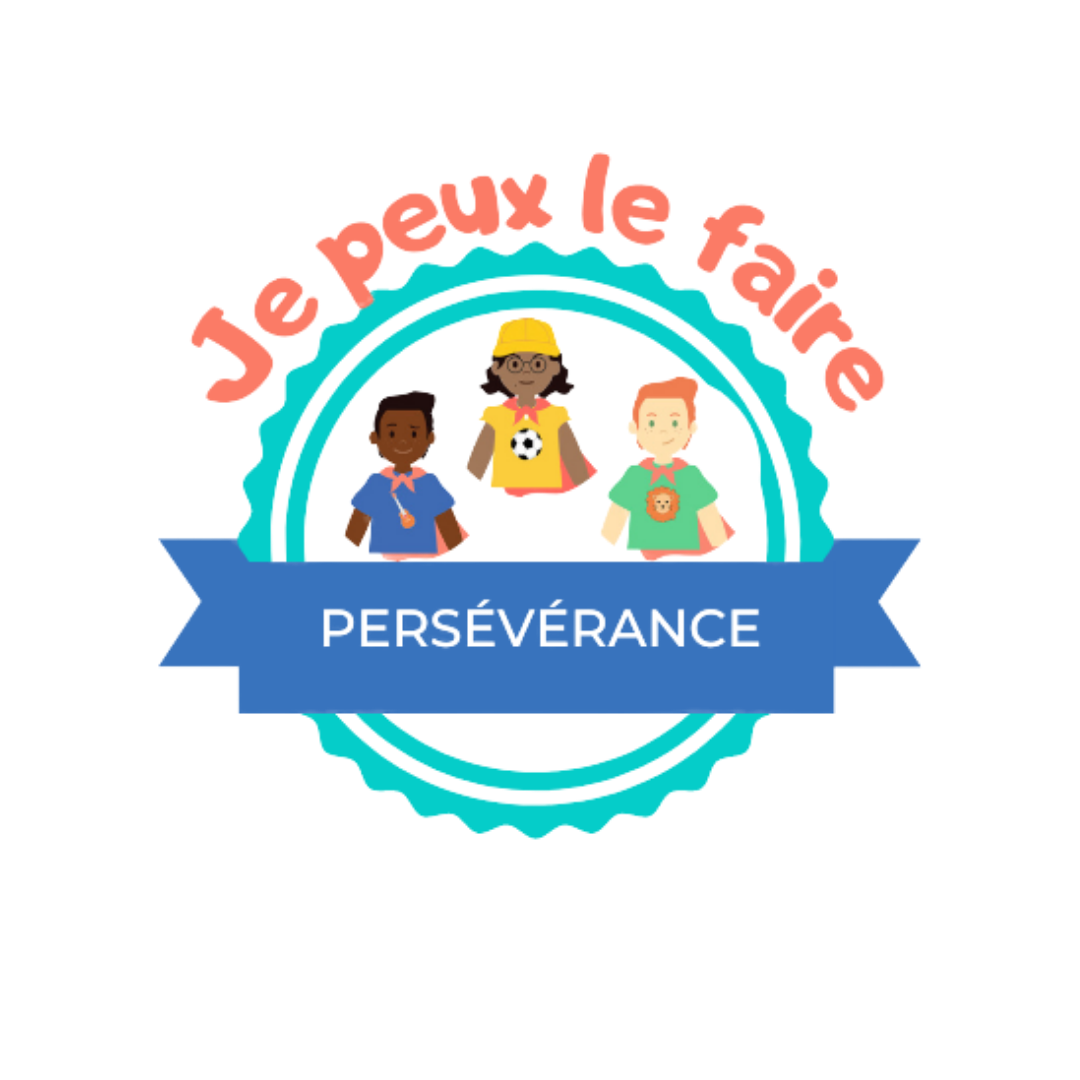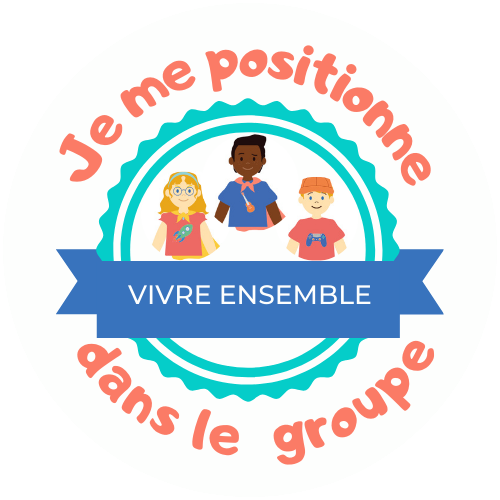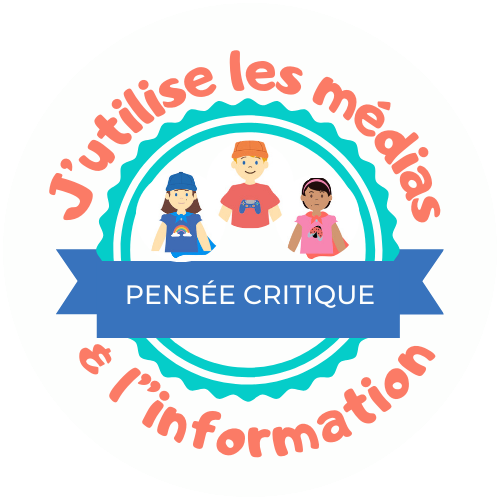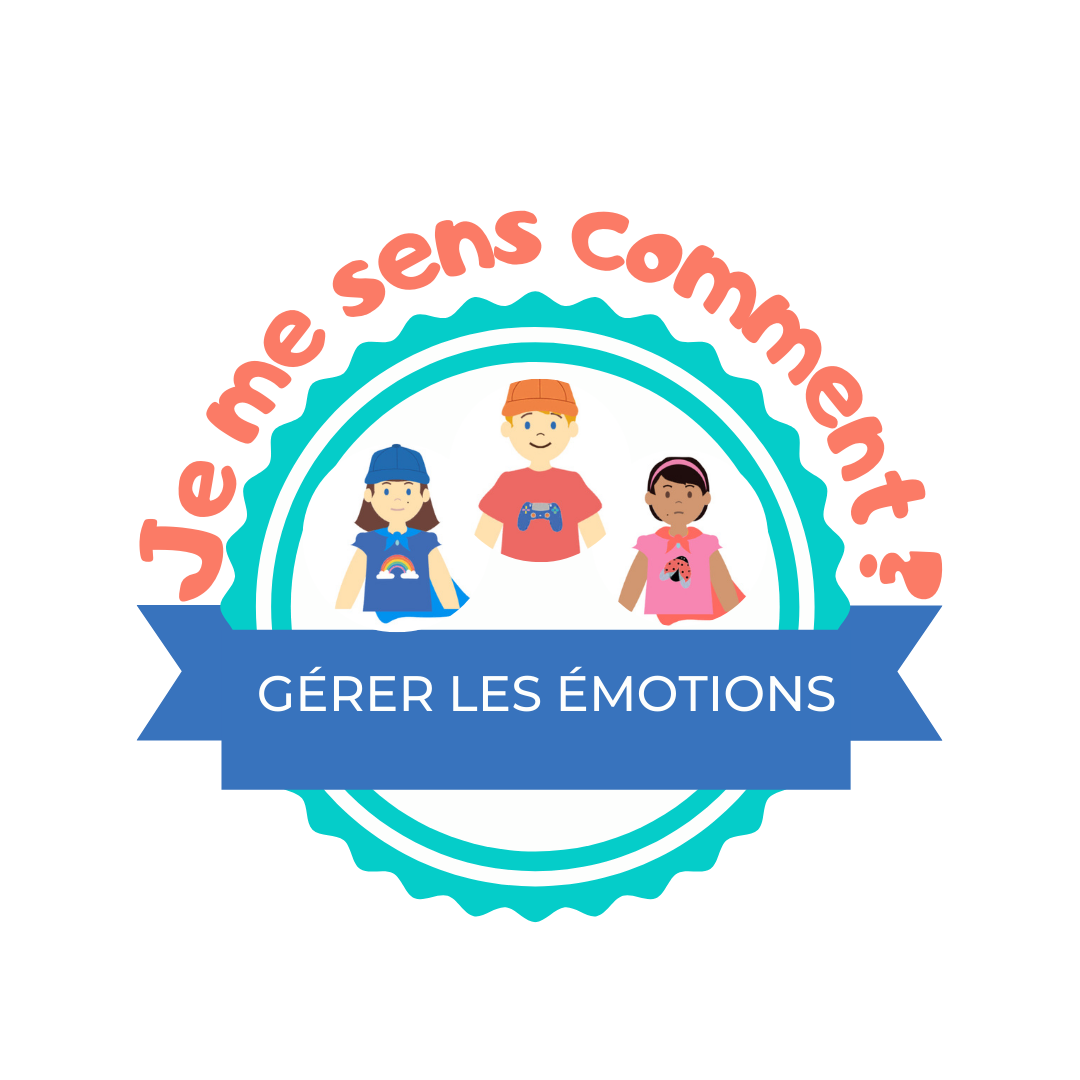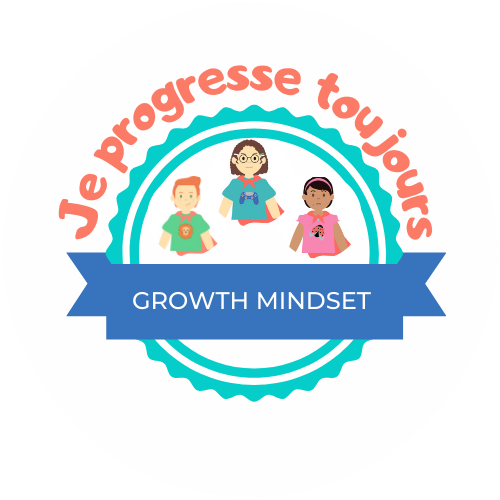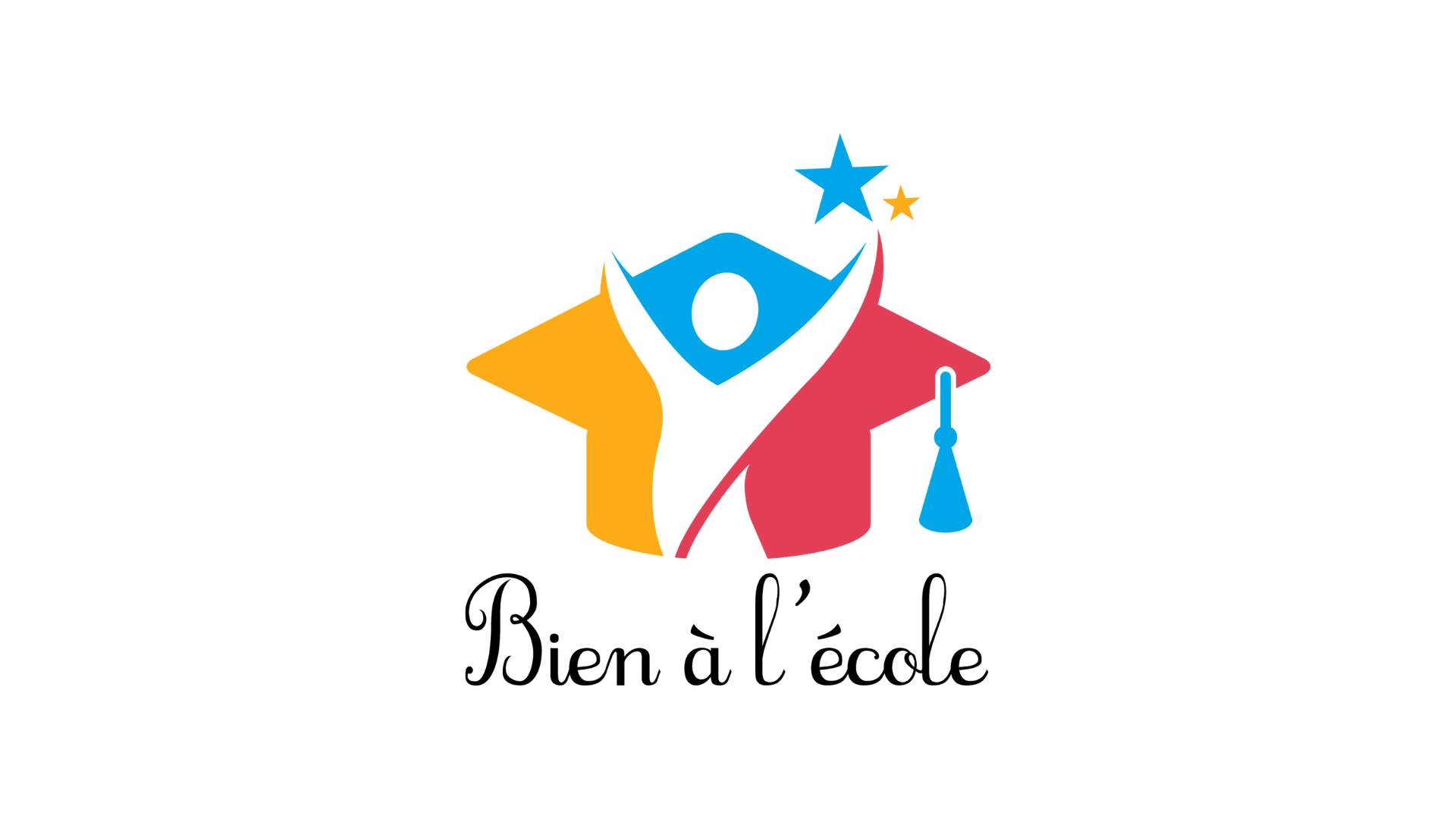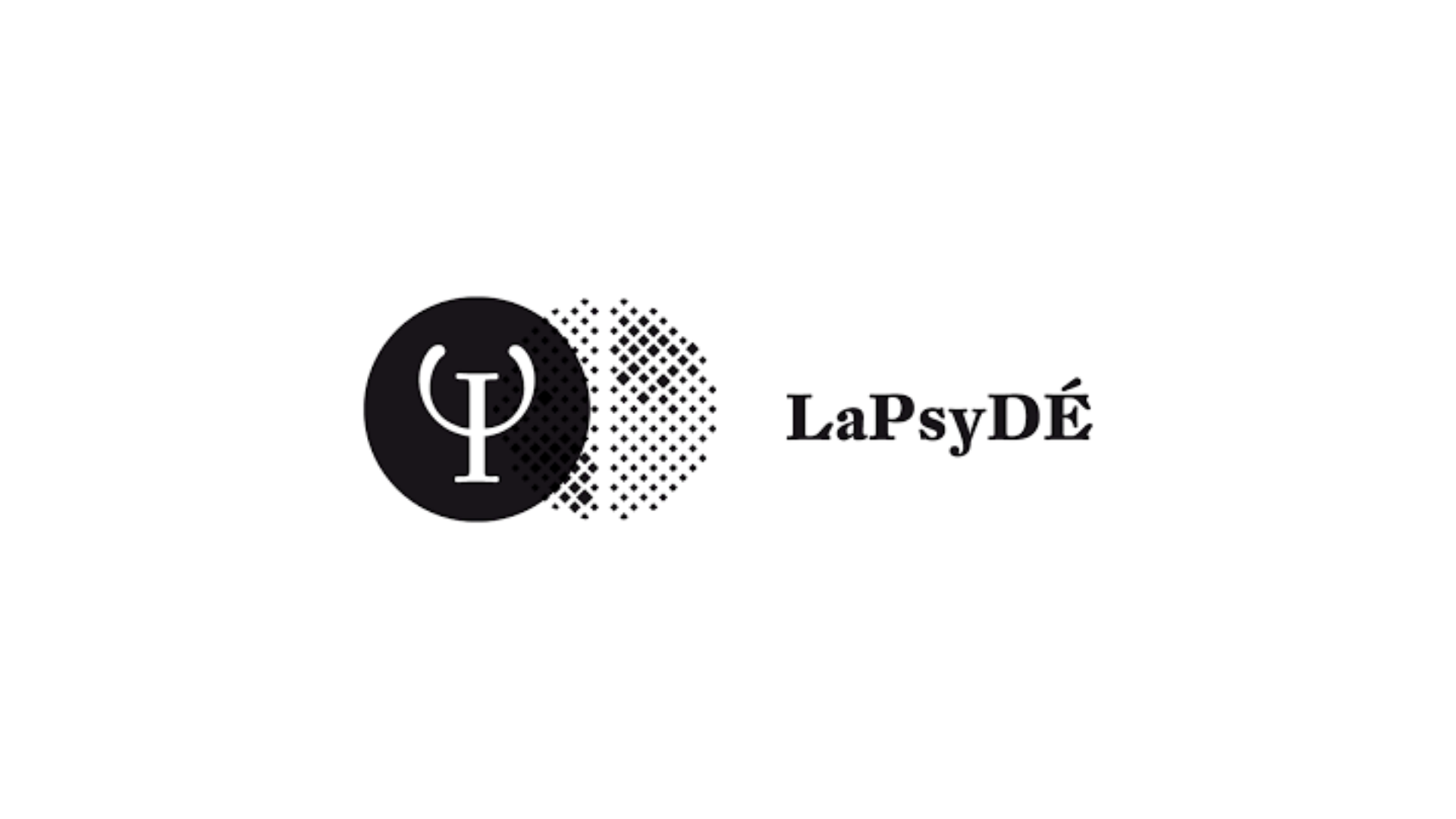SOFT KIDS FOR TEENS, YOUR ALLY IN DEVELOPING
PSYCHOSOCIAL SKILLS IN MIDDLE SCHOOL!
Psychosocial skills are a person's ability to respond effectively to the demands and challenges of everyday life. It is a person's ability to maintain a state of mental well-being, by adopting appropriate and positive behavior in relationships with others, within his or her own culture and environment.
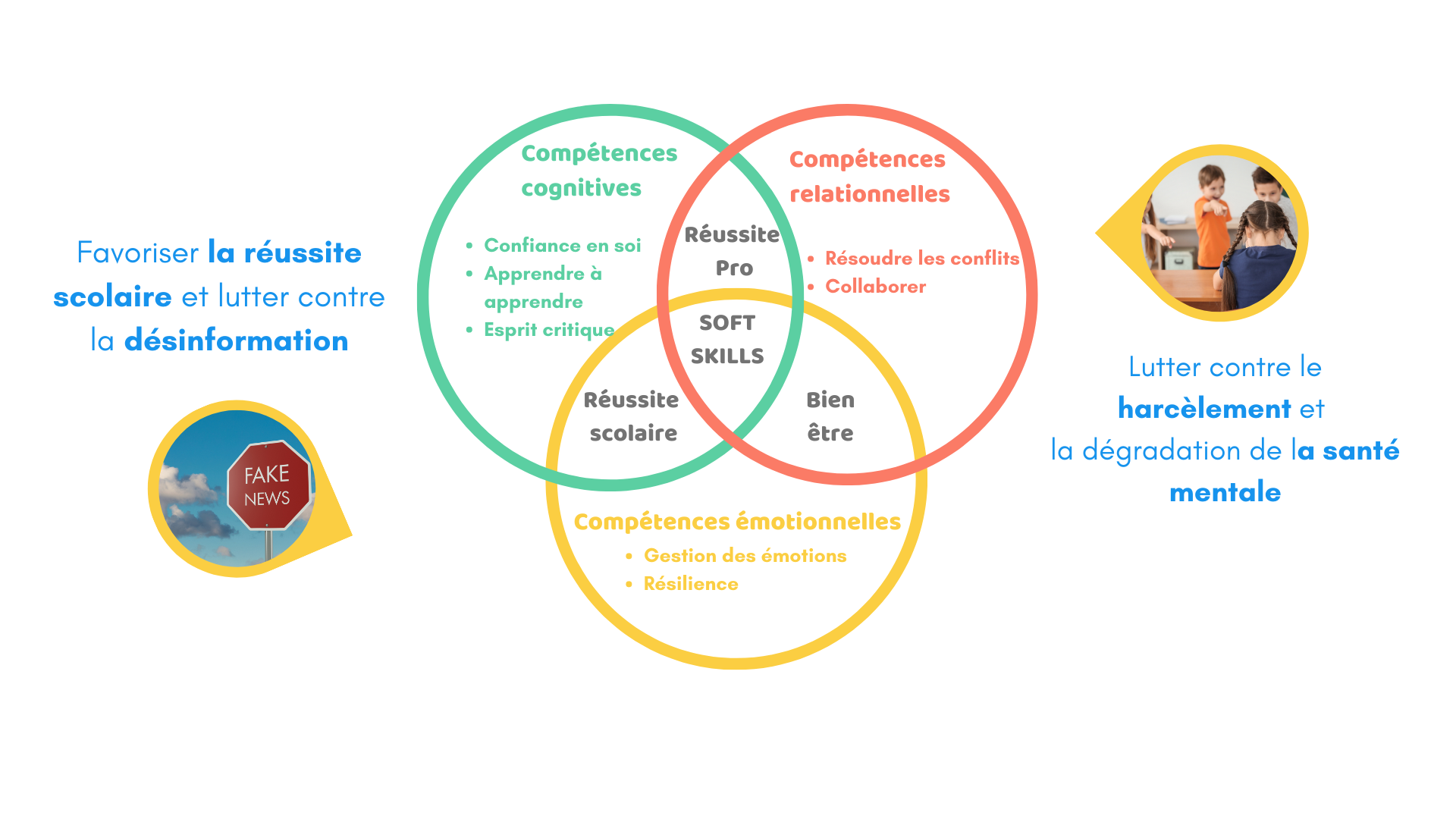
THE DREAM OF 80% OF TEACHERS
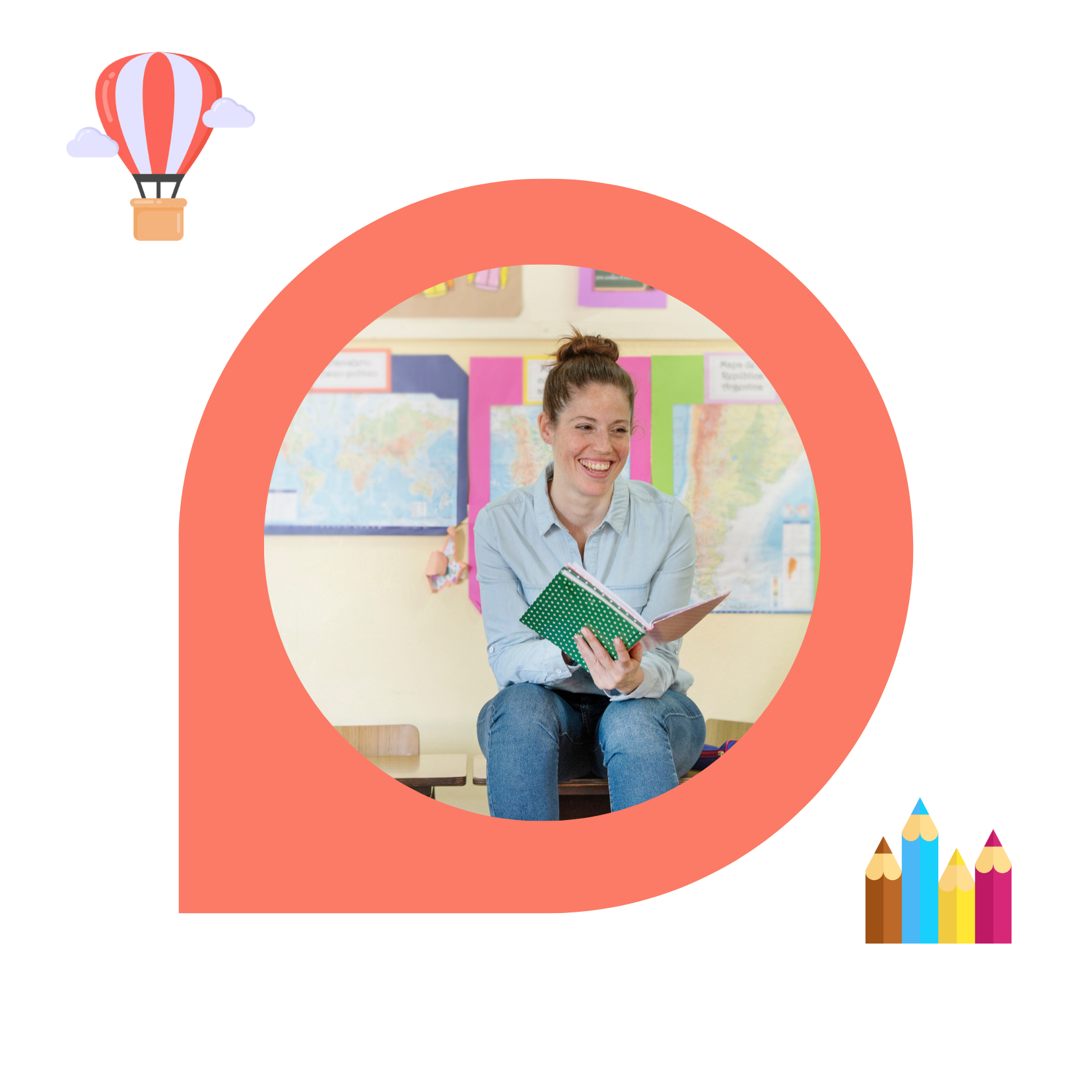
According to the scientific survey ECOLHUMA, "the role and practices of teachers in the development of psychosocial skills at school", teachersraining teachers are widely aware of the issues involved in developing PSBs, and 90% consider it important for them to contribute.
In 10 years' time, the dream shared by 80% of teachers is that the school's common base of knowledge should include, at equal levels, mastery of fundamental knowledge and the skills that are essential for living together.
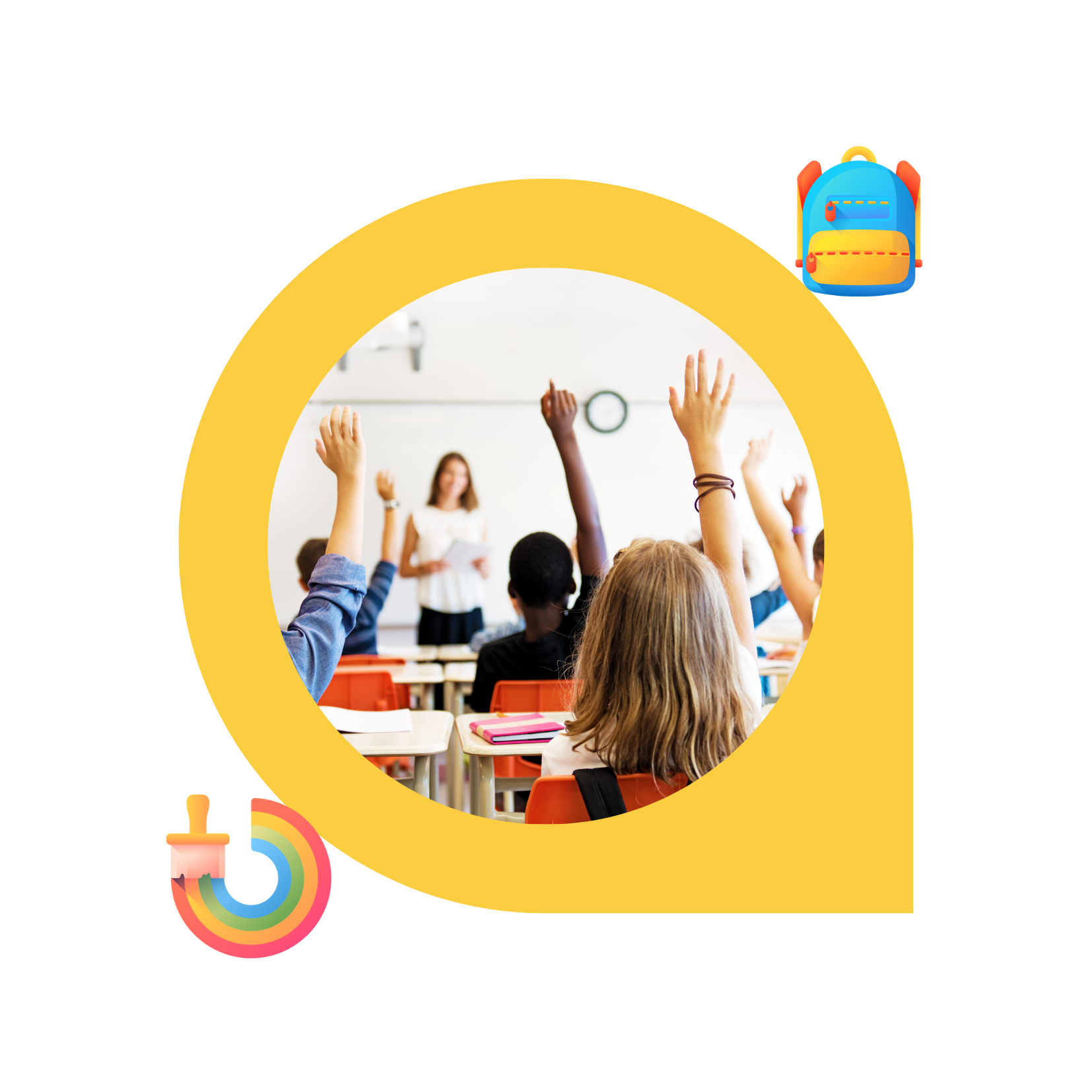
WHAT THE NATIONAL EDUCATION AUTHORITIES SAY
The French Ministry of Education gives pride of place to CPS in 3 of the 5 areas of the Common Base: languages for thinking and communicating, methods and tools for learning, and personal and civic development.
Ministerial announcements for the start of the 2023 school year show a desire to develop CPS in empathy courses.
OUR TEACHING APPROACH
Soft Kids For Teens is an innovative method that combines digital tools and socio-constructivist learning to develop CPS in Cycle 4 and Cycle 5.
Each session starts with an introspective discovery phase on tablet or computer, followed by a collaborative activity, role-playing, debate or creative activity.
Soft Kids For Teens is a complete, turnkey tool including teaching guides and projectable / photocopiable media.
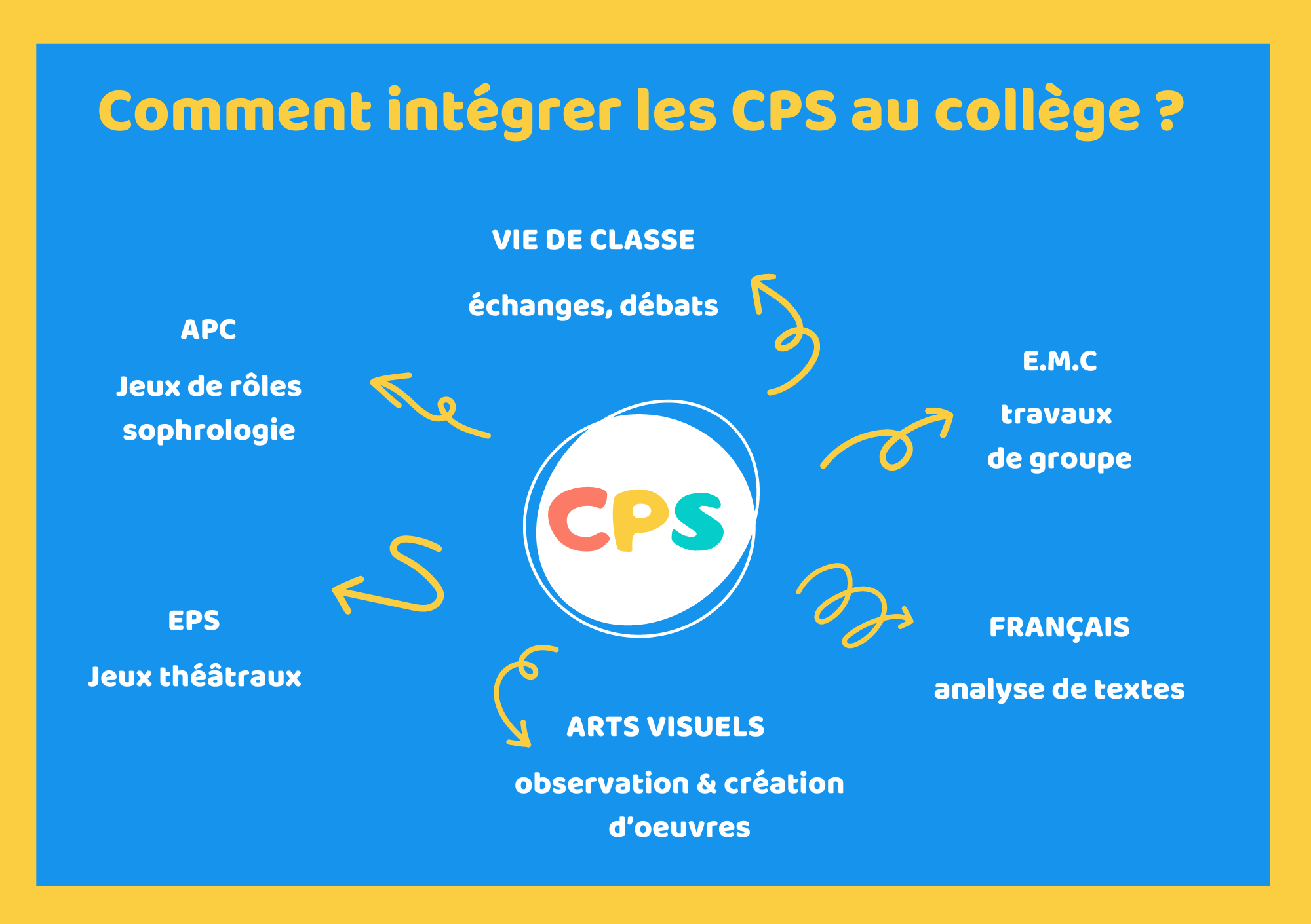
We have set up two research protocols to test our programs and measure their impact on academic success:
- one with CNRS - LaPsyDé and Nathan (Léa.fr) the Child Development and Education Psychology Laboratory.
- the other with the CNRS-IRIS laboratory, as part of the "school reform" Call for Proposals to support 500,000 school dropouts in 8 academies over 5 years.
Here are the results of the first phases of the research protocol with LaPsyDé :
"The teachers particularly appreciated :
- Alternating tablet games and debates
- Efficient and attractive design".
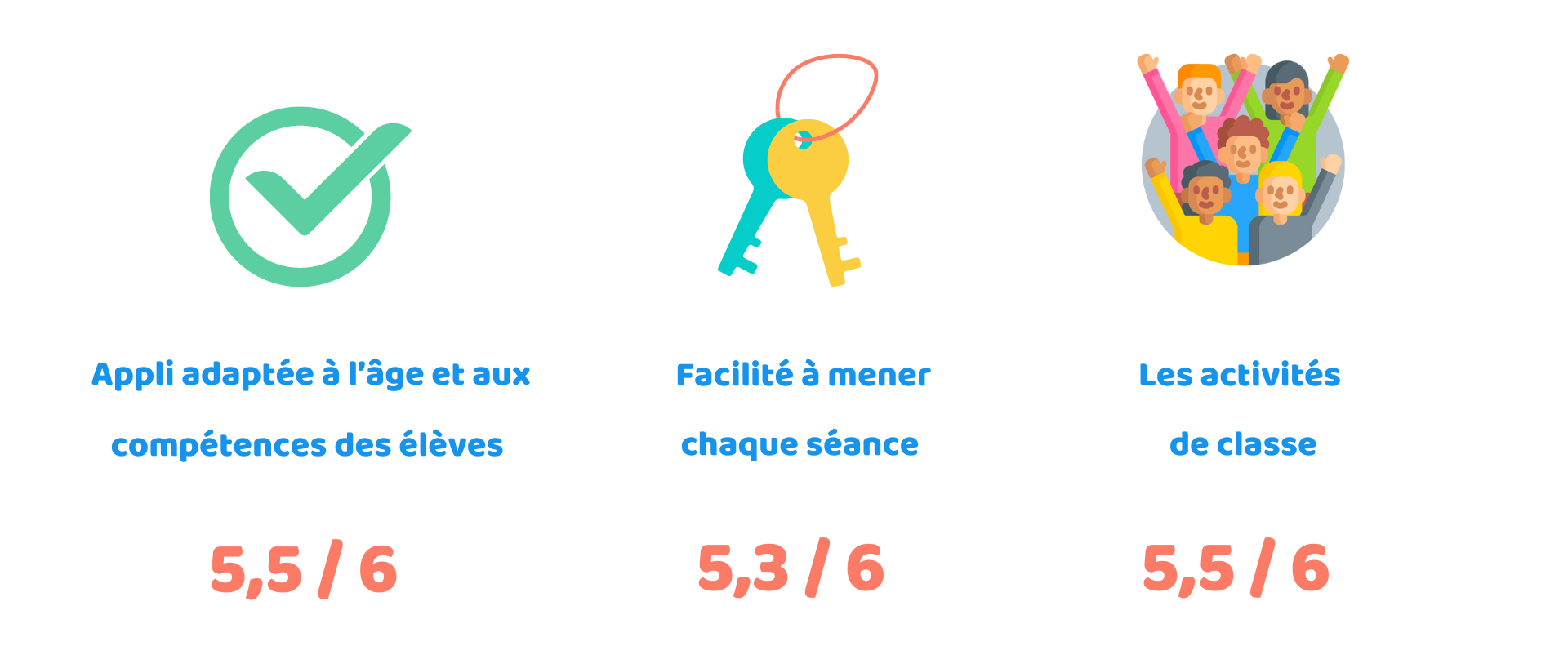
DISCOVER SOFT KIDS ON VIDEO
OUR GOAL = TO GIVE EVERYONE A CHANCE TO SUCCEED
65% of today's students will go on to work
professions that don't yet exist!

With our programs, your students develop the skills they need to succeed in school and in tomorrow's job market: living together, perseverance, emotional management, collaboration, information management, assertiveness...
Learning psychosocial skills has been shown to boost children's well-being, as well as their success at school and even at work (*).
Motivating students
The activities have been created using the principle of playfulness, enabling them to develop their psycho-social skills while having fun, and giving them the keys to cultivating them.
Feedback encourages students to adopt a reflective and constructive attitude, and to work on themselves as part of a continuous improvement process.
At the end of each game, students are rewarded with drops of water to help their tree grow: a non-competitive objective that is both motivating and ethical.
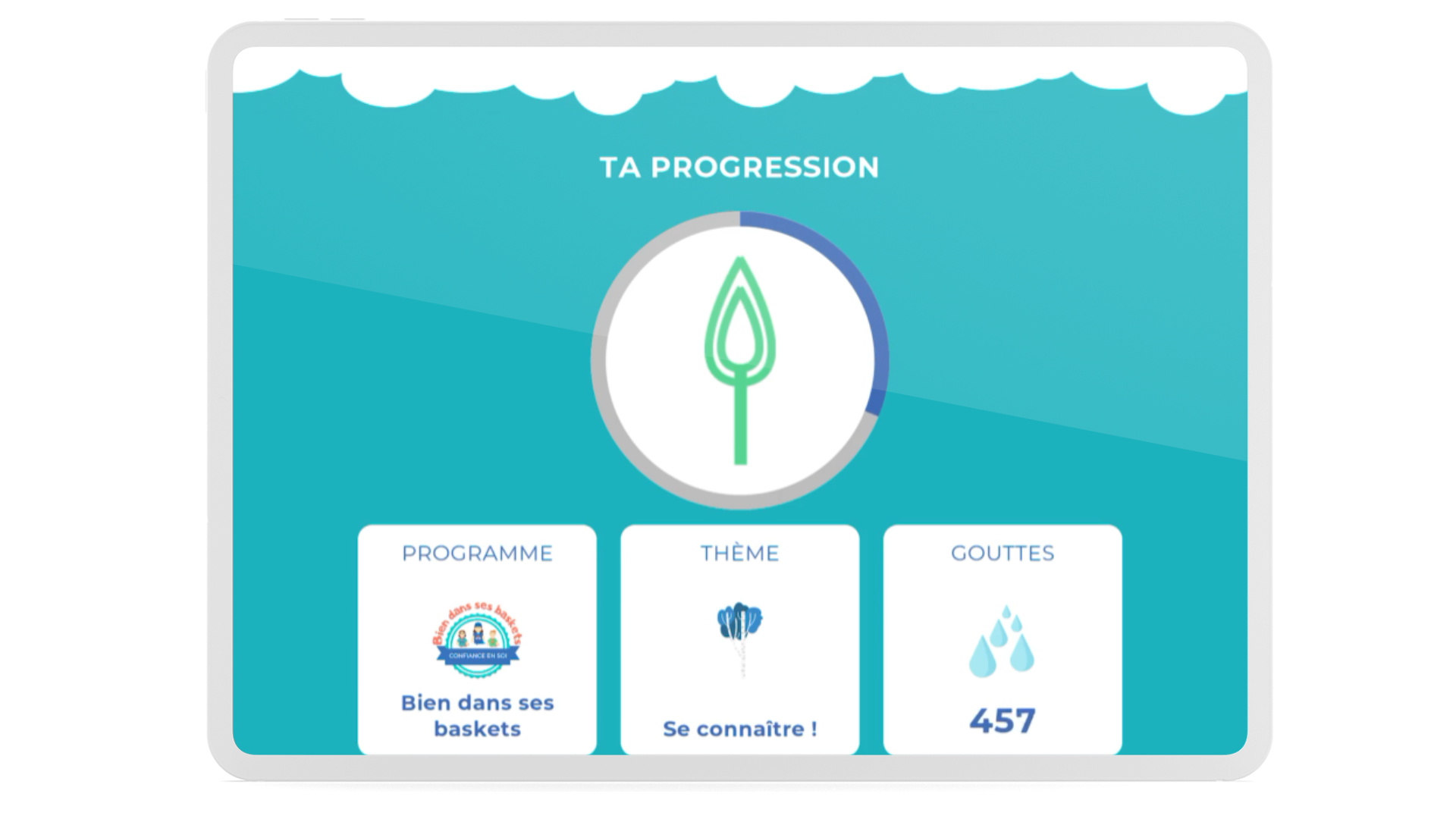

Useful screen time
Children's and teens' exposure to screens is still the subject of much debate. Nevertheless, the ELFE cohort study (14,000 children aged 2 to 5), published in The Journal of Child Psychology and Psychiatry, has just demonstrated that beyond the time spent, it's the context of use that counts for young children, family habits and the quality of the program.
We see the use of digital technology as an incredible learning lever: it offers a moment of introspection in a reassuring context, with the possibility of immediate and personalized feedback, and all this in a fun and motivating environment. Our modules last an average of 20 minutes per session, and give rise to reflections and discussions between students and teachers that would never have emerged without the digital tool.
creating a healthy classroom environment conducive to learning
Our programs help you create a respectful and collaborative classroom dynamic. By developing your students' psychosocial skills, you'll help them get to know each other better and forge empathetic bonds. With Soft Kids, you'll discover your students in a whole new light!
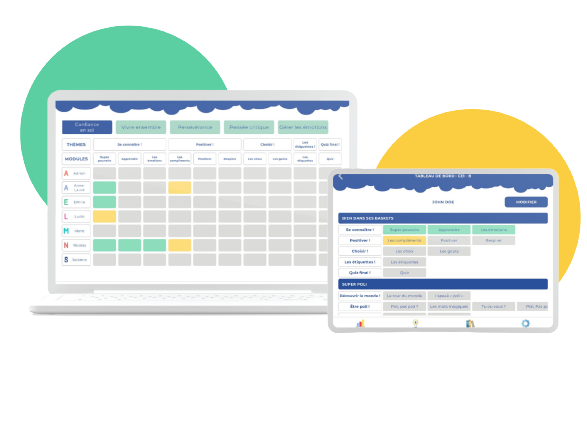
*References
Official reports
Ministère de l'Education Nationale et de la Jeunesse, Socle commun de connaissances, de compétences et de culture. BO N°17; 2015
OECD. OECD survey on social and emotional skills. Technical reports; 2021
WHO (OMS). Skills for health. Geneva: World Health Organization; 2003.
Santé Publique France. Les compétences psychosociales : état des connaissances scientifiques et théorique ; 2022
Some scientific research :
Dweck et al., 2007
McClelland & al., 2015
Durlak & al., 2011
Taylor & al., 2017



